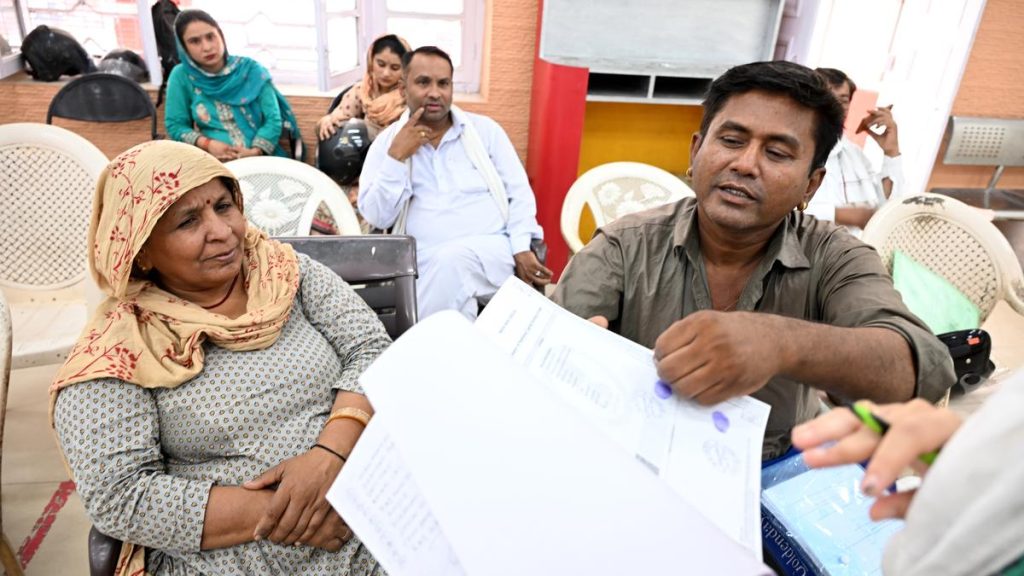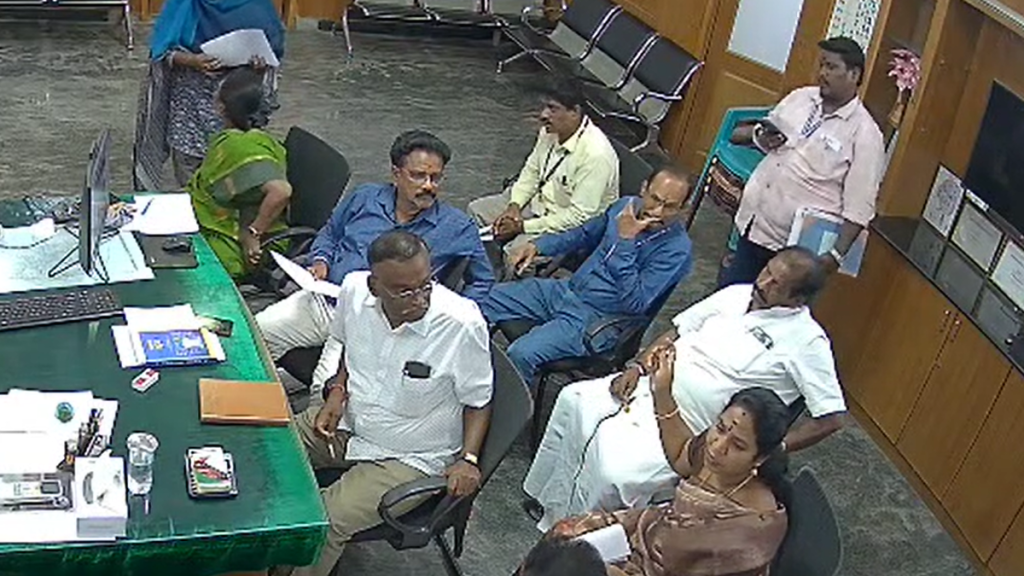Now Reading: Revenue officials in Salem boycott work, demand fewer Ungaludan Stalin camps
-
01
Revenue officials in Salem boycott work, demand fewer Ungaludan Stalin camps
Revenue officials in Salem boycott work, demand fewer Ungaludan Stalin camps
Quick Summary
- Members of the Tamil Nadu Revenue Officials’ Association (TNROA) staged a 48-hour strike and protest at the Collectorate premises in Salem on September 3,2025.
- Protesters demanded:
– Reduction in the number of weekly Ungaludan Stalin program camps from five to two.
– Appointment of additional volunteers at each camp and adequate financial support for operations.
– Filling of 564 office assistant vacancies and recreation of 97 posts for disaster management across districts.
– Creation of a Deputy Tahsildar position in all taluks to oversee Ungaludan Stalin and other government schemes.
– Improved pay scale for staff members.
- The association claims current constraints hinder their ability to act on petitions within mandated timelines,impacting service delivery.
Indian Opinion Analysis
The TNROA protest underscores challenges faced by state officials tasked with implementing government schemes, particularly resource limitations amid growing administrative demands under high-profile programs like Ungaludan Stalin. While the programme may aim to foster direct engagement between citizens and governance systems, frequent camps without adequate manpower or funding appear unsustainable as per claims from officials.
Expanding personnel resources by filling vacant posts and redefining responsibilities through new positions like Deputy Tahsildars could improve workflow efficiency while reducing bureaucratic strain-a key demand highlighted during this strike. However, balancing enterprising citizen-centric initiatives with realistic operational bandwidth remains an ongoing structural challenge for governance models across various states.
For further reading: Click Here
























